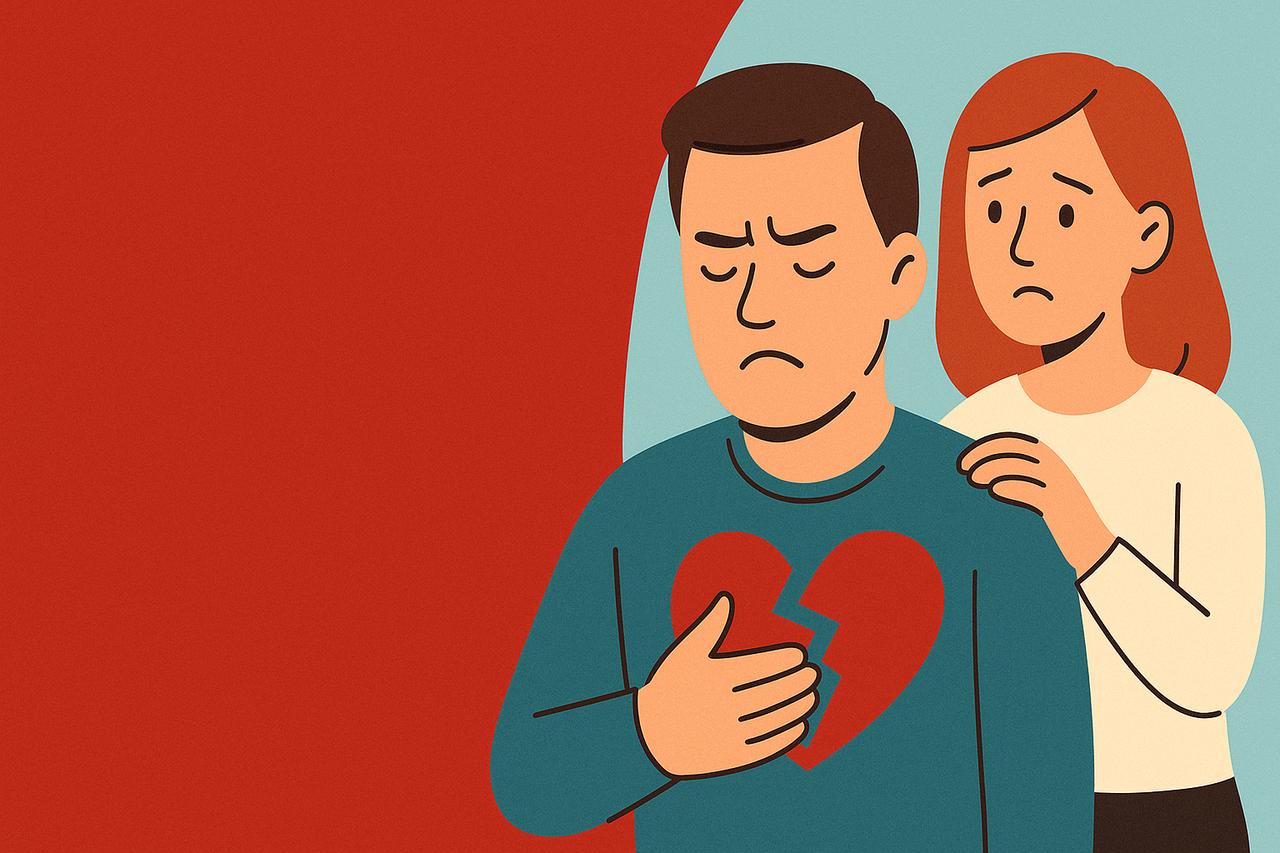Men Twice As Likely To Die From Broken Heart Than Women, Study Finds

Credit: Canva
SummaryAccording to a study published in the JAHA, the mortality of men who get broken heart syndrome is as high as 11.2 per cent, and for women, it is 5.5 per cent.
End of Article
